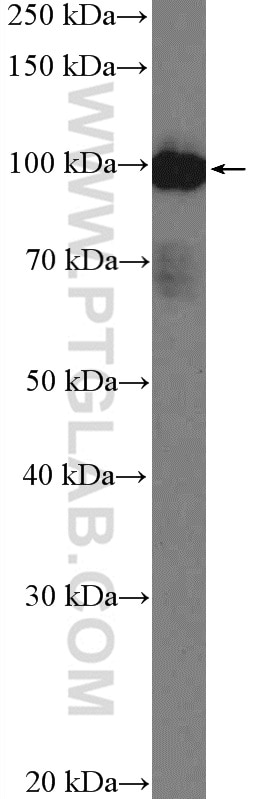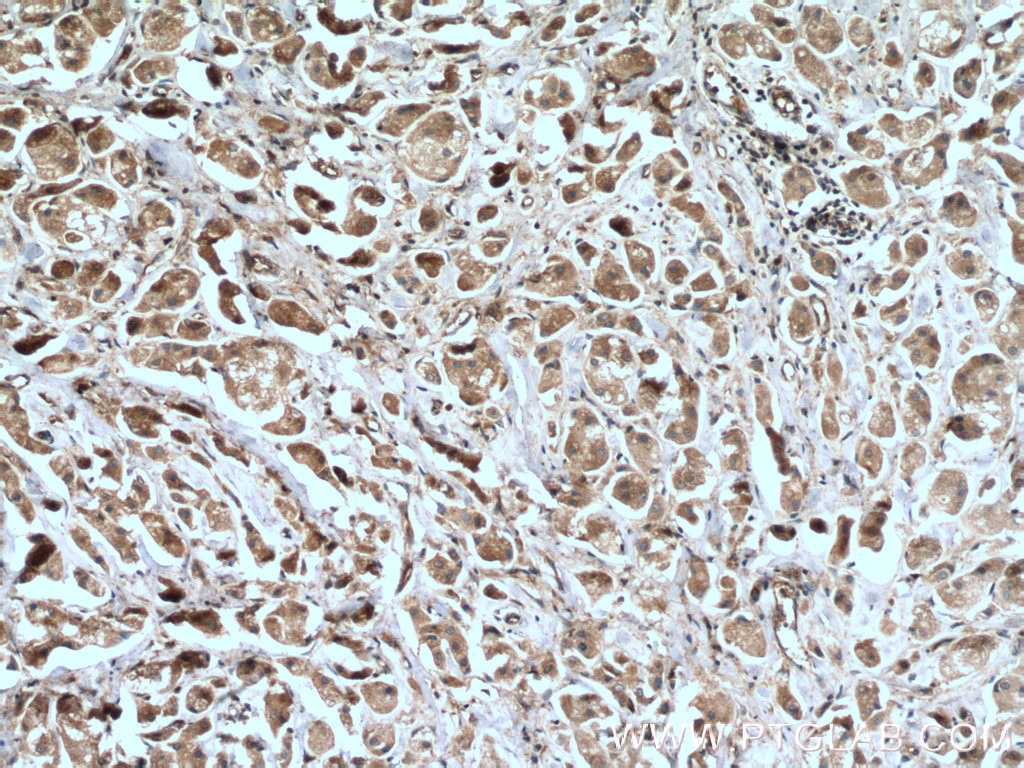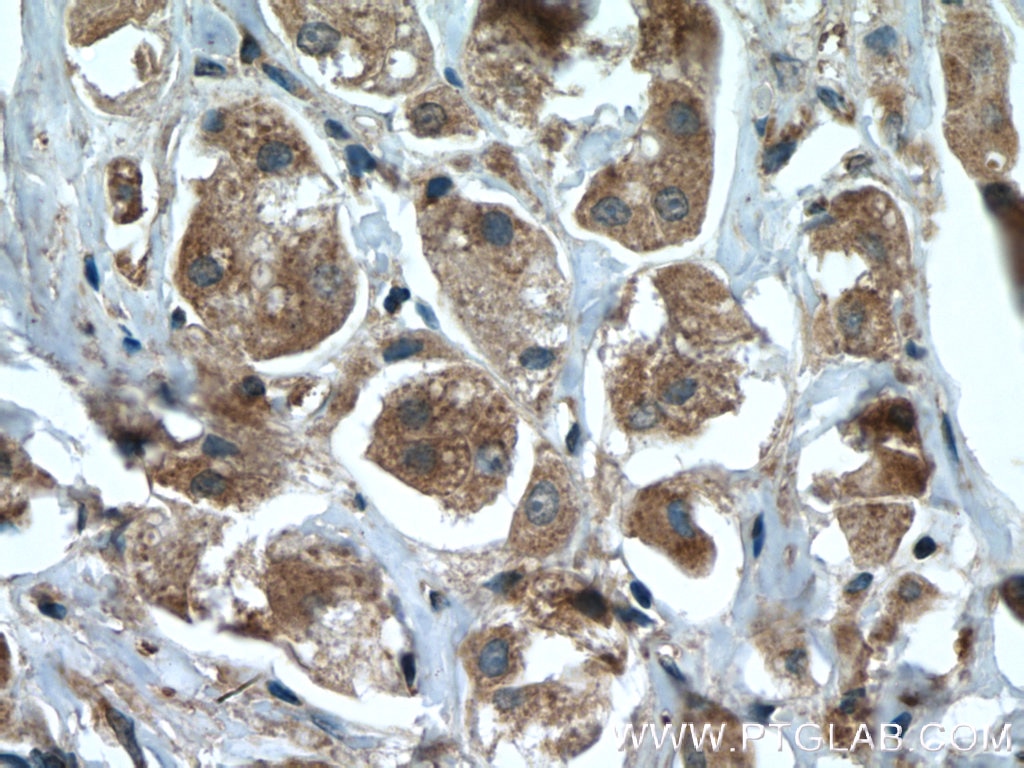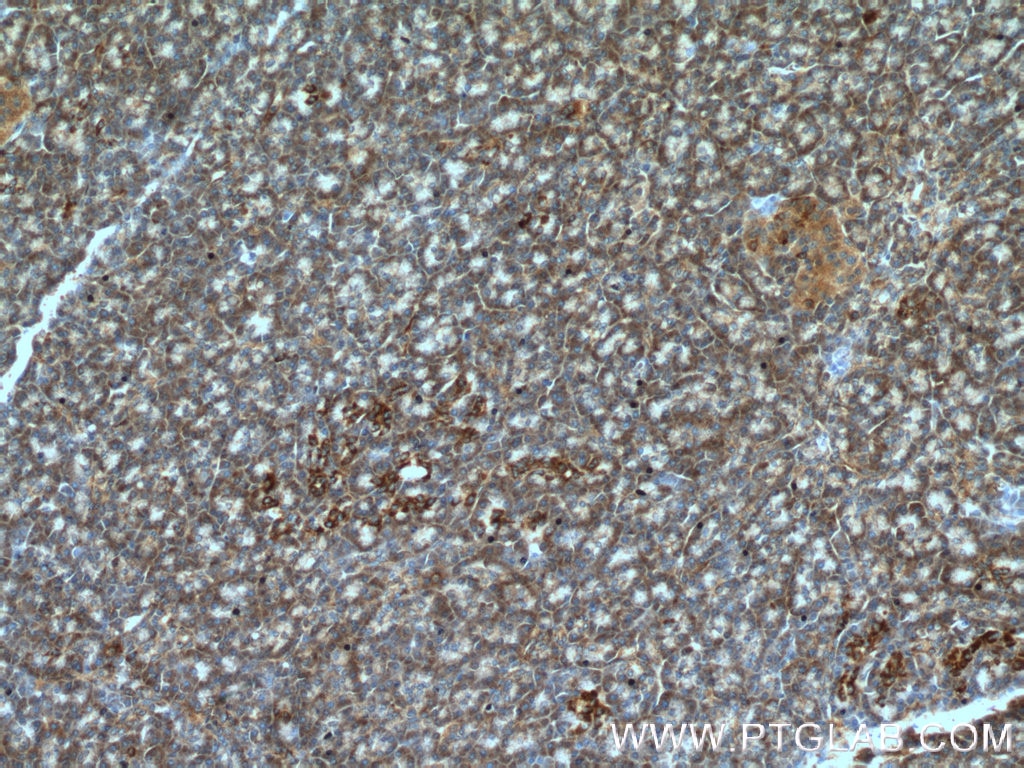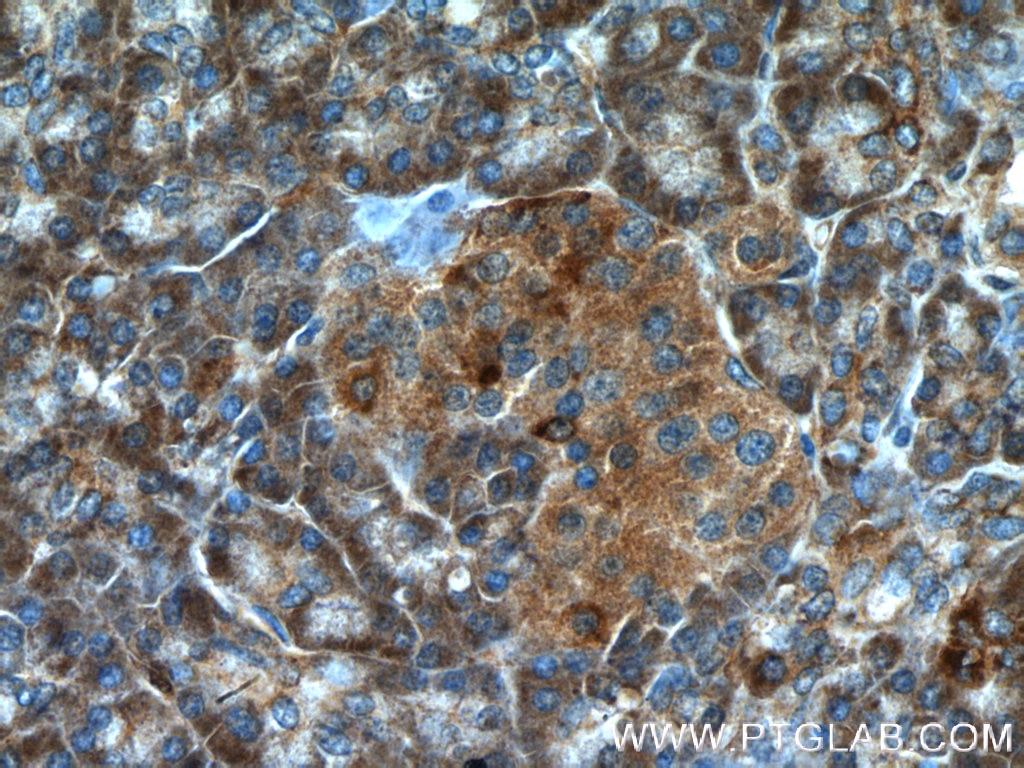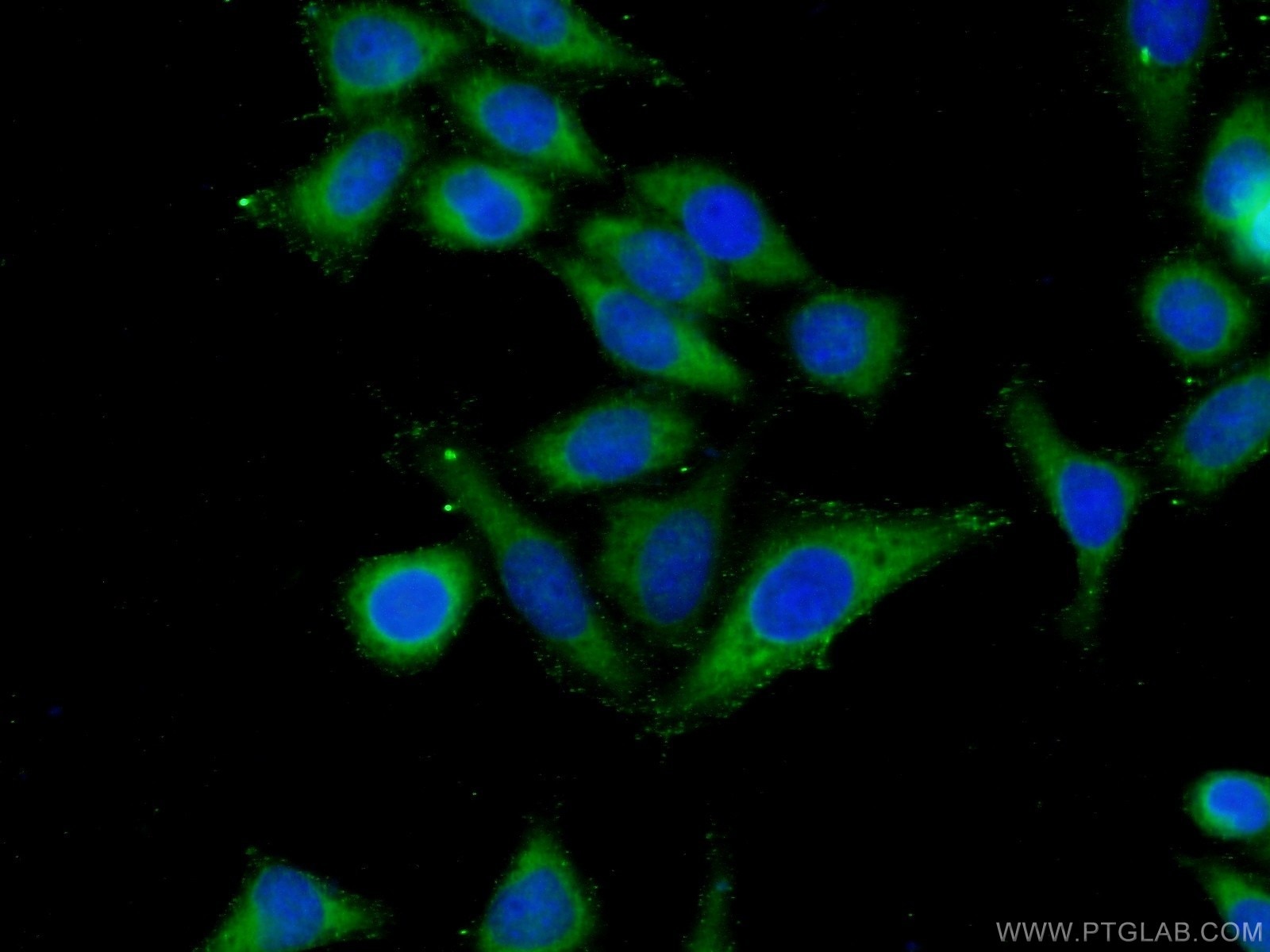Tested Applications
| Positive WB detected in | A549 cells |
| Positive IHC detected in | human breast cancer tissue, human pancreas tissue Note: suggested antigen retrieval with TE buffer pH 9.0; (*) Alternatively, antigen retrieval may be performed with citrate buffer pH 6.0 |
| Positive IF/ICC detected in | HeLa cells |
Recommended dilution
| Application | Dilution |
|---|---|
| Western Blot (WB) | WB : 1:500-1:2000 |
| Immunohistochemistry (IHC) | IHC : 1:50-1:500 |
| Immunofluorescence (IF)/ICC | IF/ICC : 1:10-1:100 |
| It is recommended that this reagent should be titrated in each testing system to obtain optimal results. | |
| Sample-dependent, Check data in validation data gallery. | |
Published Applications
| WB | See 1 publications below |
Product Information
22077-1-AP targets ARHGAP27 in WB, IHC, IF/ICC, ELISA applications and shows reactivity with human samples.
| Tested Reactivity | human |
| Cited Reactivity | human |
| Host / Isotype | Rabbit / IgG |
| Class | Polyclonal |
| Type | Antibody |
| Immunogen | ARHGAP27 fusion protein Ag17225 Predict reactive species |
| Full Name | Rho GTPase activating protein 27 |
| Calculated Molecular Weight | 548 aa, 62 kDa |
| Observed Molecular Weight | 98 kDa |
| GenBank Accession Number | BC101388 |
| Gene Symbol | ARHGAP27 |
| Gene ID (NCBI) | 201176 |
| RRID | AB_2878985 |
| Conjugate | Unconjugated |
| Form | Liquid |
| Purification Method | Antigen affinity purification |
| UNIPROT ID | Q6ZUM4 |
| Storage Buffer | PBS with 0.02% sodium azide and 50% glycerol , pH 7.3 |
| Storage Conditions | Store at -20°C. Stable for one year after shipment. Aliquoting is unnecessary for -20oC storage. 20ul sizes contain 0.1% BSA. |
Protocols
| Product Specific Protocols | |
|---|---|
| WB protocol for ARHGAP27 antibody 22077-1-AP | Download protocol |
| IHC protocol for ARHGAP27 antibody 22077-1-AP | Download protocol |
| IF protocol for ARHGAP27 antibody 22077-1-AP | Download protocol |
| Standard Protocols | |
|---|---|
| Click here to view our Standard Protocols |
Publications
| Species | Application | Title |
|---|---|---|
iScience Targeting ALDOA to modulate tumorigenesis and energy metabolism in retinoblastoma |
